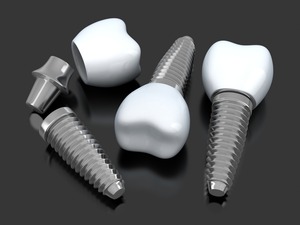
Dental implants are a popular solution for replacing missing teeth, known for their durability and functionality. Unlike natural teeth, they are made from materials such as titanium and zirconia, which are resistant to decay. However, a common question arises among patients: Can dental implants get cavities? Understanding the relationship between dental implants and cavities requires examining the nature of implants, how they interact with surrounding tissues, and the factors that influence their longevity.
The Nature of Dental Implants
Dental implants are composed of a metal post, often titanium, that is surgically inserted into the jawbone to serve as a replacement root for a prosthetic tooth or crown. Since implants are made from non-biological materials, they do not decay like natural teeth. Cavities occur when bacteria produce acids that erode the tooth enamel, a process that does not apply to implants. Therefore, implants themselves cannot develop cavities. However, the area around the implant, known as the peri-implant tissue, can be affected by other dental issues.
Peri-Implantitis and Maintenance
While implants do not get cavities, the surrounding tissues can experience problems if not properly maintained. Peri-implantitis is an inflammatory condition affecting the soft and hard tissues around an implant, similar to gum disease around natural teeth. This condition can result from poor oral hygiene, leading to the buildup of plaque and bacteria. If not addressed, peri-implantitis can cause bone loss and implant failure. Regular brushing, flossing, and professional cleanings are essential to prevent this issue and maintain the health of both the implant and surrounding tissues.
Importance of Regular Dental Check-ups
Regular dental check-ups are crucial for the longevity of dental implants. Dentists monitor the condition of the implant and the health of the surrounding gum and bone structures. During these visits, they can identify early signs of peri-implantitis or other complications. Additionally, dentists can provide guidance on effective oral hygiene practices tailored to the needs of implant patients. By adhering to these practices and attending routine check-ups, patients can ensure the long-term success of their dental implants and avoid complications that could affect their overall oral health.
About the Author
Dr. Girish Sandadi has a deep and abiding passion for dental care, one that is immediately apparent to any patient he meets. He has seen firsthand the joy that a beautiful smile can bring to his patients, which makes it all the more rewarding to be able to offer them as a part of his job. Dr. Sandadi received his dental degree from the University of Michigan at Ann Arbor and is presently a member of the American Dental Association.
If you have any questions about dental implants, he can be reached at his website or by phone at (214) 528-9990.
